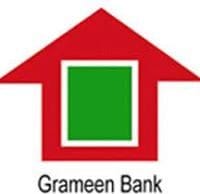Minor Loans, Major Help
Grameen, which has opened a mutual fund to raise money from Americans, has just signed contracts to manage its first two programs in the United States, in Harlem and Tulsa, Okla.
A ccion makes tiny loans – as little as $1,000 – to impoverished entrepreneurs including seamstresses, hairdressers, grocers and bankers many in the Spanish speaking enclave in Williamsburg.By helping people to become self-employed, Accion hopes to help not just individuals, but also a whole community. This kind of loan program is known as microcredit, and it has helped combat poverty in developing countries like India and Ecuador. According to the World Bank while variations of the concept have been tried with limited success, in developed countries, microcredit is now winning a growing number of converts in the United States, especially in New York. Philanthropists who have made their fortunes from Wall Street are particularly attracted to the idea of giving,a hand up, not a hand out, to budding entrepreneurs.
Among the efforts they are supporting is the first significant foray into the United States by Grameen Bank which started the microcredit movement two decades ago in Bangladesh. Grameen, which has opened a mutual fund to raise money from Americans, has just signed contracts to manage its first two programs in the United States, in Harlem and Tulsa, Okla.
But as Accion and other groups like it have found, it is not so simple to adapt a program designed for Bangladeshi villages to the very different cultural and economic situation in the United states. Although there are as many as 300 microcredit programs in America, only a few have made more than a handful of loans. Even programs like Accion, the largest in New York City, are struggling to get big enough to make a real difference.”We haven’t been able to grow as fast as we want”said Robin A. E.Ratcliffe, a vice president of Accion International, which runs several programs in the United States based on its much larger program in Latin America. In principle, microcredit programs are simple. Borrowers take out very small, very short-term loans; if they repay on time, they become eligible for bigger loans. The loans which might be as small as $1,000, might help a villager buy chickens to start an egg business, or a city dweller to buy vegetables to sell on a street corner.
Few people default. At Accion International, for example, the default rate is just above 2 percent. Because almost all the money gets repaid, it can be reused, making microcredit programs very cost effective. Proponents say some programs even make enough from their lending to cover their costs.
The concept is being promoted by the Clinton Administration, and more than a thousand people working in the field met late last month in Manhattan at the second annual “summit meeting'” on the movement.
It has also been embraced on Wall Street, which is becoming a source of both expertise and financial backing. Terri Ludwig, the president of Accion New York, is a former executive at Credit Suisse First Boston, the big investment bank; her boss, Michael Chu, who runs Accion International, is a former limited partner in the investment firm Kohlberg Kravis Roberts & Company.
The Bankers Trust Corporation, which caters to companies and wealthy individuals, has set up a fund that last month made its first loans to microcredit lenders, including Accion New York. The $500,000 in the fund came from the bank and some of its well-to-do customers. Banks are generally not in the business of writing tiny loans, because they are as expensive to process – and far less profitable – than larger loans. And bankers can be reluctant to base their lending on a borrower’s character, rather than collateral.
Some Asian and Caribbean immigrants raise money for their businesses through so-called lending circles. Members of these circles agree to contribute a set amount each month into a pot. Immigrants from Korea, Vietnam, Trinidad, Jamaica, Barbados and Ethiopia all have similar programs, said Iban Light, a professor at the University of California at Los Angeles, who has studied informal credit networks.
But many would-be entrepreneurs turn to loan sharks. Adalberto Espinalno, who runs a bodega in Williamsburg, said loan sharks charge $200 a month on a $1,000 loan – an interest rate of 140 percent a year. He turned instead to Accion to borrow so that he could keep the store shelves well stocked; he used up his $14,000 savings to make a down payment on the store, which the previous owner lost because of his heavy debts to loan sharks.
Accion charges 16 percent a year in interest, which is more than an established business might pay, but less than many Americans pay on their credit cards. In 1997, the New York program had 344 active borrowers who took out 1.4 million in loans.
But there are challenges to running a program in New York, challenges that are not faced by lenders in rural villages. Getting the word out about the program is difficult; many potential borrowers, especially women, do not think of the baby-sitting or cleaning they do to make a little extra cash as a formal business.
But the founders of the microcredit movement worry that Americans have already tampered too much with the original model. That is one of the reasons Grameen has decided to manage some programs here, said Alex Counts, director of the Grameen Foundation in Washington. For one thing, some American programs – though not Accion – tend to emphasize formal training over lending, Mr. Counts said. “It’s very typical, and close to universal, to require 10 weeks of business training before you can talk about getting a loan.He said, “People who are running a business or are serious about starting one don’t have time for that.”
